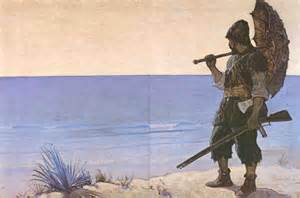As England neared its abolition of slavery, different arguments were presented by those of the public who wished to end it.
-

John Locke helped introduce the idea of Natural Rights Human Rights – This argument pointed out the ideas of Locke, the Levelers and other philosophers who have spread the idea that human beings have natural rights; you own yourself, and so you have a right to live and keep the fruits of your labor.
- Humanitarianism – Humanitarians pointed out how inhumanly the slaves were treated, both in their voyages and in their labors in the New World and elsewhere. Though it did not necessarily entail the end of slavery on its own, it did help people to realize the evils of slavery.
- Economic – This argument pointed out that the economy of the day would be just fine without slavery; in fact, it was being harmed by it. Slaves didn’t always have to work year round; on the off seasons they were an economic burden to their owners. Slaves also didn’t work efficiently, as they were being forced to work with no reward.
- National Security – In England at the time of the Abolition of Slavery, one of the arguments in support of slavery was that the sailors taking the slaves from Africa to the New World were obtaining valuable experience, and would thus be more capable if called upon to defend Britain, when in fact they were being decimated by disease and hardships.
Any one of these arguments would probably not of been powerful enough to persuade those with special interests in the slave trade to quit and start something more economically productive. If you presented the Natural Rights argument alone, for example, but slaves were still thought to be economically essential, you wouldn’t go very far. But with all of these arguments together, England finally ended first the slave trade, then slavery itself.

